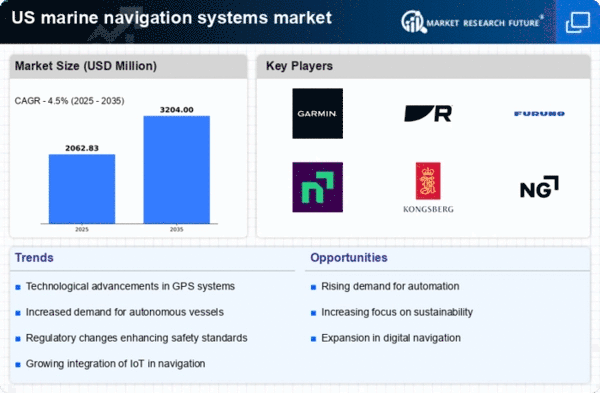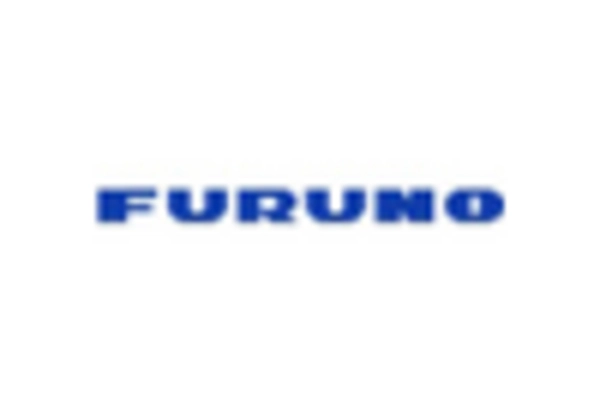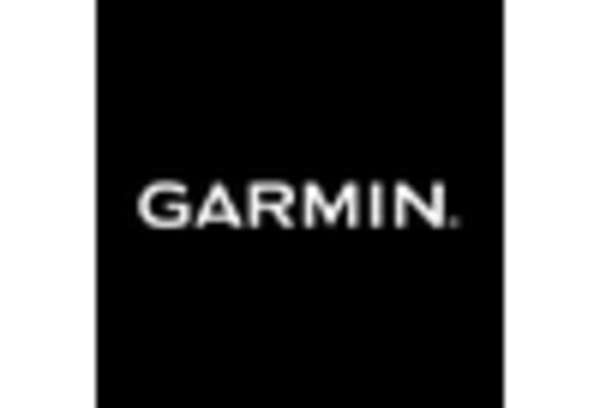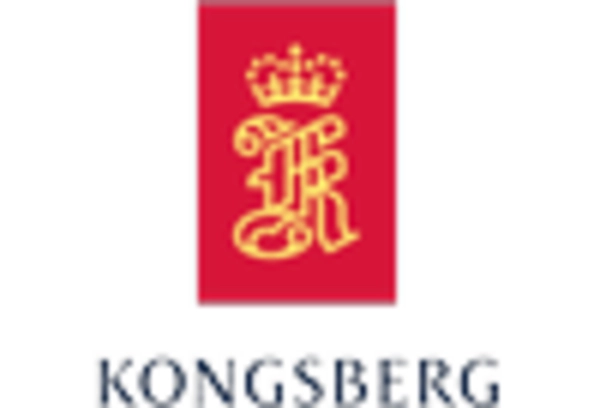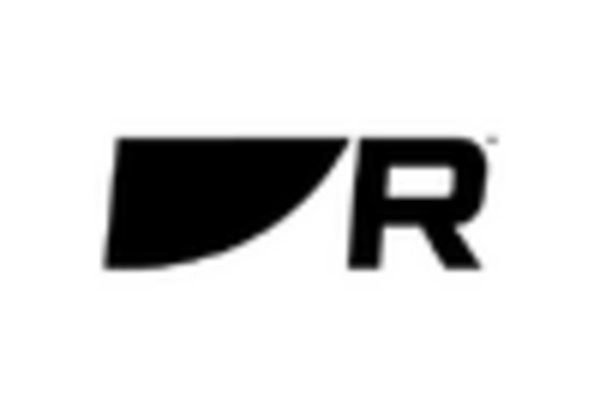Growing Environmental Regulations
the marine navigation-systems market is influenced by tightening environmental regulations aimed at reducing emissions and protecting marine ecosystems. Regulatory bodies are imposing stricter guidelines on vessel operations, necessitating the adoption of advanced navigation systems that can optimize routes and reduce fuel consumption. This shift is expected to drive the market for eco-friendly navigation solutions, with a projected growth rate of 12% annually. Companies that can provide systems compliant with these regulations are likely to gain a competitive edge. As environmental concerns continue to escalate, the demand for navigation systems that support sustainable practices will likely increase, shaping the future of the marine navigation-systems market.
Increased Demand for Safety Features
The marine navigation-systems market is experiencing heightened demand for advanced safety features. This trend is driven by the increasing awareness of maritime safety among operators and regulatory bodies. Enhanced navigation systems that integrate collision avoidance, real-time tracking, and emergency response capabilities are becoming essential. According to recent data, the market for safety-enhancing technologies is projected to grow by approximately 15% annually. This growth is indicative of a broader shift towards prioritizing safety in marine operations, which is likely to influence purchasing decisions. As a result, manufacturers are focusing on developing systems that not only comply with existing regulations but also exceed them, thereby positioning themselves competitively in the marine navigation-systems market.
Expansion of Maritime Trade and Logistics
The expansion of maritime trade and logistics is a crucial driver for the marine navigation-systems market. As global trade continues to grow, the need for efficient and reliable navigation systems becomes paramount. The U.S. maritime industry has seen a steady increase in cargo volumes, with projections indicating a growth of 10% in the next five years. This surge in trade activities necessitates the adoption of advanced navigation systems that can handle increased traffic and ensure timely deliveries. Consequently, manufacturers are focusing on developing systems that enhance route planning and traffic management, thereby addressing the evolving needs of the marine navigation-systems market.
Integration of IoT and Connectivity Solutions
the integration of Internet of Things (IoT) technologies into marine navigation systems is transforming the landscape. IoT-enabled devices facilitate real-time data exchange, enhancing situational awareness and operational efficiency. This integration allows for predictive maintenance, which can reduce downtime and operational costs. The market for IoT applications in marine navigation is expected to witness a growth rate of around 20% over the next few years. As vessels become increasingly connected, the demand for sophisticated navigation systems that can leverage this connectivity is likely to rise. Consequently, manufacturers are investing in developing systems that can seamlessly integrate with IoT platforms, thereby enhancing their offerings in the marine navigation-systems market.
Technological Innovations in Navigation Systems
Technological innovations are at the forefront of driving advancements in the marine navigation-systems market. The introduction of cutting-edge technologies such as artificial intelligence, machine learning, and augmented reality is revolutionizing navigation capabilities. These innovations enable more accurate positioning, improved decision-making, and enhanced user interfaces. The market is witnessing a compound annual growth rate (CAGR) of approximately 18% as companies invest in research and development to stay competitive. As these technologies become more accessible, the demand for sophisticated navigation systems that incorporate these innovations is likely to increase, shaping the future landscape of the marine navigation-systems market.


